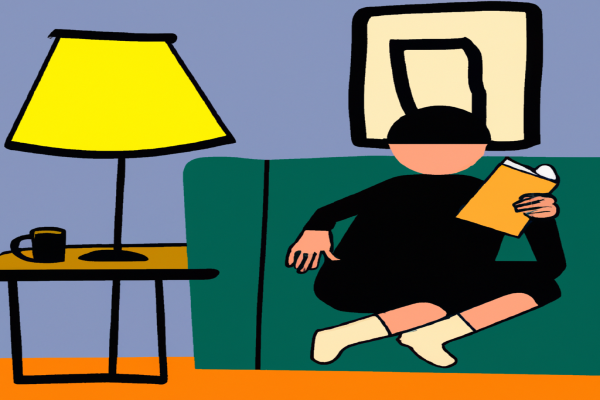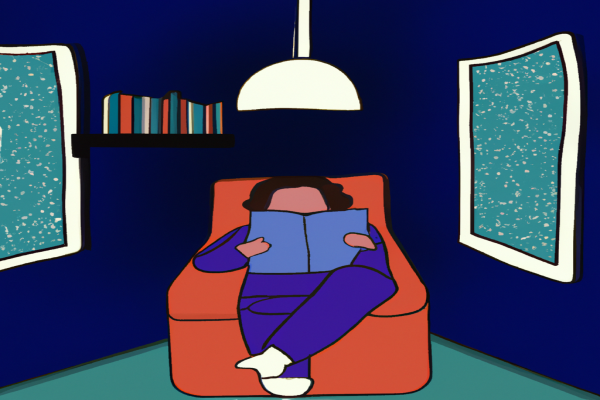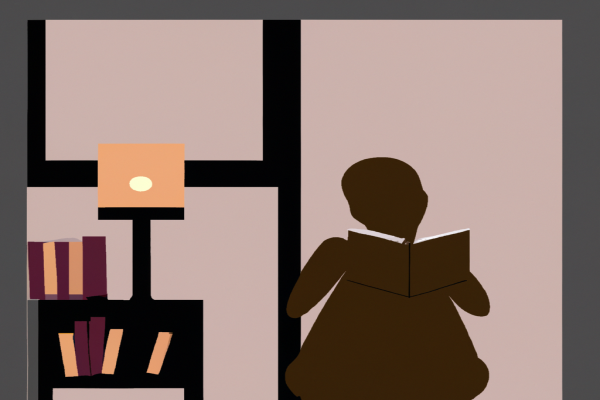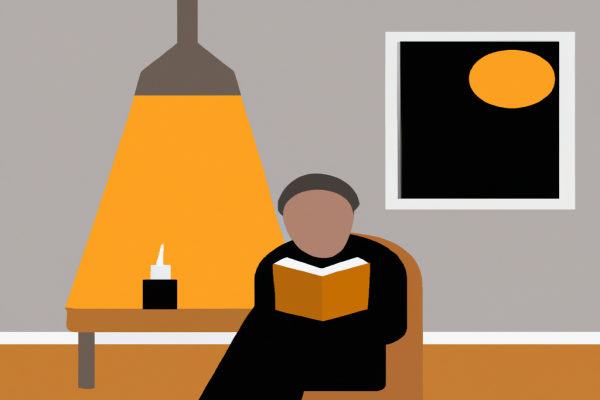Jane Eyre: Summary
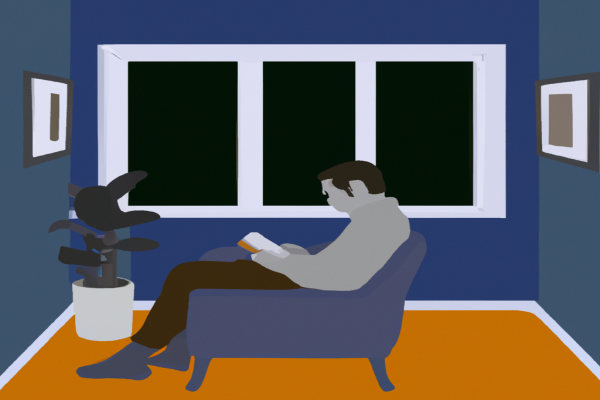
Jane Eyre is a novel by Charlotte Brontë, published in 1847. It tells the story of Jane, an orphaned girl who is raised by her cruel aunt and then sent away to a boarding school. At the school, she faces further mistreatment but also finds friendship and kindness. When she grows up, she becomes a governess at Thornfield Hall, where she falls in love with the mysterious Mr. Rochester. Though they eventually plan to marry, their happiness is cut short when Jane discovers that he is already married. Distraught, Jane flees from Thornfield and survives alone in the moors for several days before being taken in by a kind clergyman's family. After much soul-searching, she decides to return to Thornfield, where she discovers that Rochester has been literally and figuratively scarred by a fire, and that his wife has died. The two are reunited and marry, finally able to live happily ever after.
Want to know more?
What is Jane Eyre about?
Jane Eyre is a novel by Charlotte Bronte that follows the life of an orphan girl, Jane, as she navigates her way through life. It deals with themes of love, independence, morality, and social class. As Jane grows up, she faces many challenges to her identity and her place in society. She must learn to find her own inner strength, courage and moral compass to become her own person and make her own decisions. The novel also explores gender dynamics and the power struggle between men and women in the Victorian era. Ultimately, Jane learns that true happiness can only be found in loving relationships based on mutual respect and understanding.
Jane Eyre: Book Club Questions
- What is the significance of the red-room in Jane Eyre?
- How does the theme of religion influence the novel?
- What is the role of fantasy and supernatural elements in the novel?
- How do Jane's relationships with her family and friends shape her character development?
- How does Jane's independence as a woman challenge traditional gender roles?
- What do you think is the main message that Charlotte Bronte was trying to convey through the novel?
- How does Jane's experience at Lowood School shape her ideas about education?
- In what ways do gothic elements add to the atmosphere of Jane Eyre?
- How does Bronte use setting to enhance the plot and develop characters in Jane Eyre?
- Is there a connection between Jane’s name and the meaning of her story?
What to say about Jane Eyre
- Jane Eyre is an incredibly strong female protagonist who shows great resilience in the face of adversity.
- The book does a great job of exploring themes of morality and justice throughout the narrative.
- Jane's journey from a young, powerless girl to a confident woman is truly inspiring.
- Charlotte Bronte's writing style is poetic and captivating, drawing the reader in from the first page.
- The dynamic between Jane and Rochester gives us a fascinating insight into the complexities of love and relationships.
- The contrast between the characters of Jane and Blanche highlights how societal expectations can shape our lives.
- The Gothic elements throughout the novel create a heightened sense of tension and drama.
- Jane Eyre is a compelling story that remains relevant today, exploring issues such as gender inequality and class division.
- The novel contains many moral lessons that are still applicable to modern society, making it a timeless classic.
- Charlotte Bronte was ahead of her time by exploring feminist ideas within her writing, making Jane Eyre an important literary work for today's readers.
Top 5 Quotes from Jane Eyre
- "I am no bird; and no net ensnares me: I am a free human being with an independent will."
- "It is in vain to say human beings ought to be satisfied with tranquillity: they must have action; and they will make it if they cannot find it."
- "I care for myself. The more solitary, the more friendless, the more unsustained I am, the more I will respect myself."
- "I am no more lonely than a single mullein or a wild duck."
- "Life appears to me too short to be spent in nursing animosity or registering wrongs."
Adaptations of Jane Eyre
TV: 1. Jane Eyre (2006) – a Masterpiece Theatre miniseries starring Ruth Wilson and Toby Stephens. 2. Jane Eyre (1973) – a British television production starring Sorcha Cusack and Michael Jayston. 3. Jane Eyre (1983) – an American television movie starring Zelah Clarke and Timothy Dalton. 4. Jane Eyre (1997) – a Hallmark Hall of Fame production starring Samantha Morton and Ciarán Hinds. 5. Jane Eyre (2006) – an ITV production starring Toby Stephens and Ruth Wilson. 6. Jane Eyre (2011) – a BBC adaptation starring Ruth Wilson and Toby Stephens. 7. Jane Eyre (2015) – a three-part miniseries produced by PBS's Masterpiece Classic, starring Sarah Snook and Aidan Turner. Film: 1. Jane Eyre (1943) – an American film starring Orson Welles and Joan Fontaine. 2. Jane Eyre (1970) – a British film starring Susannah York and George C Scott. 3. Jane Eyre (1996) – an American film directed by Franco Zeffirelli, starring William Hurt and Charlotte Gainsbourg. 4. Jane Eyre (2011) – a British romantic drama film directed by Cary Fukunaga, starring Mia Wasikowska and Michael Fassbender. 5. A Little Bit of Heaven (2011) - an American romantic comedy-drama loosely based on the novel, starring Kate Hudson, Gael García Bernal, Whoopi Goldberg, Lucy Punch, Rosemarie DeWitt and Romany Malco Radio: 1. BBC Radio 4's Classic Serial: Jane Eyre (1999). 2. BBC World Service's Radio Repertory Company Presents: Jane Eyre (2005). 3. BBC Radio 4's Classic Serial: The Life of Charlotte Bronte with Extracts from "Jane Eyre" (2010). Podcast: 1. Blindspot: A Novel Approach to Jane Eyre by Charlotte Bronte (2018). Theatrical Adaptations: 1. Charlotte Bronte’s “Jane Eyre” (2001), adapted by Polly Teale for Shared Experience Theatre Company in London, England; won the TMA Award for Best Touring Production in 2003/2004 season; revived in 2006 for a limited run at Southwark Playhouse in London; revived again in 2013 for another limited run at Southwark Playhouse; revived again in 2015 at the National Theatre in London; premiered in New York City at the Mint Theater Company in 2016; revived again in 2018 by Northern Stage at its home theatre in Newcastle upon Tyne, England; adapted again as ‘Jane’ by Lauren Gunderson at San Francisco Playhouse in 2019/2020 season; revived again in 2020 as an audio play podcast series on The Classical Theatre of Harlem’s website; performed as a radio play on BBC Radio 4 Extra in 2020
Other books by Charlotte Brontë
- The Professor
- Shirley
- Villette
- The Tenant of Wildfell Hall
- Poems by Currer, Ellis and Acton Bell
Did you know?
Jane Eyre was the first novel to have an individual woman as its protagonist and narrator.

